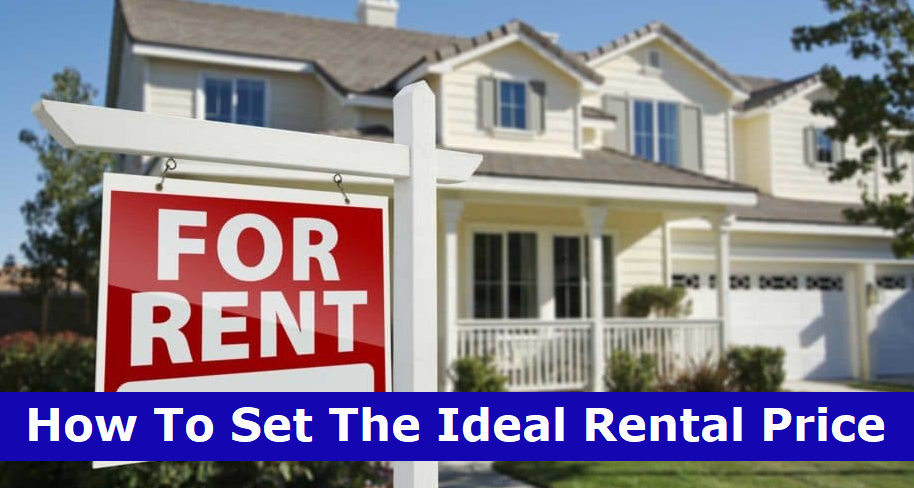Blog
If you have questions about property management or want to find out whether a professional property manager could be right for you, we would love to hear from you! Please contact Trisha at trisha@propertiescal.com or call Peebles Property Management on (530) 370-9188. www.peeblespropertymanagement.com

Effectively maintaining your investment property will save you a significant amount of money over time. Preventative maintenance can be hugely beneficial in cutting down on those costly emergency fixes. Regular maintenance also encourages tenants to take care of your property and improves tenant satisfaction, leading to longer lease periods and lower turnover. Let’s take a look at five vital steps to effective property maintenance. 1. Use tenants moving out as an opportunity for improvement The ideal time to make major upgrades to your property is of course between old tenants moving out and new residents moving in. This is not a time to skimp on maintenance. In the long run, your property will increase in value as you keep it in excellent shape. Some things to consider include pressure-washing the outside, improving the landscaping, changing out carpets (every 5 years), touching up interior paint (especially doors and trim) and, if needed, fully repainting the outside (at least every 10 years). Remember, a prospective tenant will decide for or against your home within the first few minutes of viewing it. First impressions are vital. 2. Preventative maintenance is key How do you avoid those expensive and stressful emergency maintenance calls? By regularly checking your property and scheduling preventative maintenance. In these long, hot summers it is imperative that air filters are changed out every few months and sprinkler systems are timed correctly. You should plan yearly inspections on hot water heaters and roofs – leaks in these areas can cause major damage, easily avoided by simply fixing issues before they become chronic. You should also check for leaks in faucets and showers and keep an eye on appliances. It’s also a good idea to utilize residents in helping to spot issues. Find opportunities to ask them whether they have noticed any maintenance issues that need to be addressed – they will appreciate your concern. 3. Have a plan to handle maintenance requests How you respond to your tenants’ maintenance requests will have a significant impact on your relationship. Perceived inadequate response is one of the main reasons tenants leave a property. Make sure you reply swiftly to any messages and keep tenants in the loop regarding when work will take place, even if you are unable to fix issues immediately. Put together a list of trusted vendors that you can call when needed, and make sure to check in with tenants after work has been completed to ensure the problem is solved. 4. Know how to deal with emergencies There are some emergencies that require immediate action, meaning tenants may need to call you in the middle of the night. Are you available to answer that call? If not, you need a plan in place to deal with such emergencies. You could consider hiring someone specifically to handle these situations, or you could give your tenants permission to call specific vendors for help only in set emergency situations. As unlikely as it may seem, disasters do happen and costly damage can be avoided when residents are able to act fast. 5. Consider hiring a professional You can avoid the hassle and stress involved in emergency property maintenance, as well as saving time and money in a host of other areas, by simply hiring a professional Property Manager. A property management company can get your home rented fast at the ideal price, write a watertight lease agreement, receive and chase down rent, handle delinquent tenants, take care of all aspects of maintenance, and be available 24/7 to take those emergency calls. The cost of their services is likely to be covered by the increased revenue and money saved though damage prevention. Plus, you’ll be free to spend more time doing the things you love! If you have questions about property management or want to find out whether a professional property manager could be right for you, we would love to hear from you! Please contact Trisha at trisha@propertiescal.com or call Peebles Property Management on (530) 370-9188. www.peeblespropertymanagement.com

Renting out your property can be a great investment – providing cash flow issues don’t cause endless headaches. Every landlord is at some point going to have to deal with a tenant that fails to pay rent on time. What matters is how you deal with the issue. Having a plan in place to deal with delinquent tenants goes a long way towards solving those headaches. Here are five steps you can take towards problem-free rental ownership. 1. Choose tenants wisely It’s highly important to screen tenants before choosing new residents for your property. Before doing so, please bear in mind that discrimination laws dictate the correct way to do this. You must have set criteria that you abide by for all tenants – for example if you turn down one for having too low an income, you must turn down every other candidate with that income. Here are some important screening checks to employ: Check their references. Make sure to call any previous landlords and ask them if they would want to rent to these tenants again. Credit check: Make sure you obtain an up-to-date consumer credit report. This may not show rent payments, but will show any past evictions. We advise that tenants with past evictions are automatically disqualified. Criminal record check: Make sure to ask permission to run a full criminal record check in all states the tenant has previously resided in. Income verification. Your tenant needs to be able to earn at least twice, ideally three times what they would pay you in rent. Don’t be afraid to verify they have this income. 2. Make paying rent easy You can cut out the human error aspect of late rent payments by making payments automatic. You can either set up automatic withdrawals from their bank account using ACH debit, or require your tenants to set up their own automatic payments direct to your bank account. The easier you make it to pay rent, the fewer late payments you will have to handle. For example, Peebles property management employs an online rent-payment system, as well as an office and mailing address to receive checks and a secure drop-box where tenants can deposit checks outside of hours. It might be tempting to allow cash payments, however this is to be discouraged as it provides no paper trail and as easily lost. It’s better to have a ‘no cash’ policy clearly advertised in your rental agreement. 3. Be prepared to enforce your lease A strong lease agreement is vital. It should lay out exactly how much rent is due, the monthly due date, acceptable payment methods, any grace period, late fees, and consequences for late payments or bounced checks. However, a lease agreement is only as good as your commitment to enforcing it. There may be times when you feel sorry for tenants and want to cut them some slack, however failing to enforce late fees is likely to lead to a pattern of late rent, with tenants no longer taking you seriously. You need to know the terms of your lease and be prepared to enforce them exactly as stated. 4. Communicate effectively and often. Communicating regularly with your tenants is a great strategy to avoid payment issues. Make sure to contact your tenants within 24 hours when a payment has not been made. A simple text reminding them to pay can make a big difference. If a tenant needs to pay a few days late, make sure to find out exactly when they will pay, and by what method. When communicating about late fees or serving a three day notice to pay, make sure to keep your communication straightforward, kind, and devoid of emotion. Even if a tenant becomes heated or emotional, you need to remain calm and keep the conversation about the facts – the lease agreement they signed and the consequences of late payment that they agreed to. 5. Enforce both positive and negative consequences It’s vital to always enforce your lease agreement, applying late fees where appropriate and beginning the eviction process as needed. Bear in mind a notice that you intend to file for eviction may be enough to prompt tenants to solve the issue. Evictions are rare – for example, Peebles Property Management deals with perhaps three eviction per year while managing over 350 properties. However, make sure not to overlook positive patterns! If a tenant pays on time and obeys all your rules, make sure to thank them with a gift basket or gift card – perhaps after 6 or 12 months of positive behavior. Making sure good tenants feel appreciated will make it more likely that they stay with you. If you have questions about property management or want to find out whether a professional property manager could be right for you, we would love to hear from you! Please contact Trisha at trisha@propertiescal.com or call Peebles Property Management on (530) 370-9188. www.peeblespropertymanagement.com

When considering listing your rental property, one of the first questions you’re going to want to answer will be “for how much?” It’s an important question. Set the price too high and you might fail to get any interest, and at the very least you’re likely to have high vacancy rates over the course of several years. Set the price too low and you’re leaving money on the table that you could use to improve your property. It’s also important to consider that the market will change over time, so your price will have to be adjusted regularly. So how do you decide on the ideal rate? Here are 5 helpful tips to set the ideal rental price for your property. 1. Find your ballpark figure To find a very rough estimate as a starting point, you could set the rent at $1 per square foot. For example, if your property is 1,000 square feet, you could start with an estimated rent of $1000/month. From here, you could compare this number with the prices similar properties are renting for nearby – for example using rentometer.com. Bear in mind this is not going to be your final value, but more of a good first guess. You also need to decide from the outset whether to include utilities, or to expect tenants to cover these. With soaring summer power bills, it might make sense to lower the rent and leave utilities out, however in doing so you may risk delinquent tenants failing to pay bills. 2. Consider size and location Location is perhaps the most important factor to consider. The same sized property can rent for widely different rates depending on the neighborhood it is placed in. That’s why it’s very important to be aware of the market in your location. You’ll want to know what similar properties in your area are renting for, and also how long it’s taking those properties to rent. Size is the next biggest factor. Make sure you’re comparing your property to those with a similar square-footage and similar features (number of bedrooms and bathrooms etc.) 3. Research the local market One factor you should take into consideration is the median income of residents in your area – a statistic you should be able to find online. A potential tenant’s income determines their purchasing power. Ideally, a tenant should make at least twice as much as they pay in rent. If you’re charging considerably more than a local resident can afford, you may need to rethink your numbers. Another consideration is lease term – do you want to make your price flexible and allow tenants to negotiate a lower price for a longer lease term? This may be well worth doing in order to incur lower vacancy rates. Lastly, you need to be aware of any recent trends in the local rental market. 4. Take account of the small details. .Firstly, is your property furnished or unfurnished? You should be able to charge a little more if your property is move-in ready. Secondly, what does your exterior look like? Is there a big yard or swimming pool? Is the landscaping well taken care of? Is there a garage or decent parking? These considerations might warrant a small increase or discount. Similarly, are there internal features that a tenant might be prepared to pay more for – for example large closets, hardwood floors, or a basement? Finally, what will your policy be regarding pets? It’s important that you are very specific when dictating which pets may or may not be permitted, and what the additional cost or security deposit will be, if any. 5. Consult a professional A professional property manager or realtor makes their living by accurate judging property prices. They know how to get your property rented, and how to attract the best tenants. Consulting a professional may save you time, hassle and money, and is likely to help you get your property rented much faster. Additionally, a property manager can help you advertise your property, screen potential tenants, craft a water-tight lease agreement, and if necessary handle all the administration and maintenance involved in ongoing tenant management. In many cases, the money saved more than covers the fee! Many companies will also take care of finding tenants and writing the lease agreement for a flat fee with no monthly commitment. It’s well worth checking out what services are available in your area. If you have questions about property management or want to find out whether a professional property manager could be right for you, we would love to hear from you! Please contact Trisha at trisha@propertiescal.com or call Peebles Property Management on (530) 370-9188. www.peeblespropertymanagement.com

5 Steps to Rent Your Property Fast Did you know a Peebles Rental Property is generally on the market for 2 weeks or less before being successfully rented? Many are even rented before the previous tenants have moved out! However, the key to getting your investment property rented fast is to get it in rent-able condition as quickly as possible. Here are five steps to take to rent your property fast.

Even with the most comprehensive screening process, if you’re a landlord, you are at some point going to run into problem tenants. Whether they pay rent late or stop paying entirely, cause property damage or become engaged in illegal activities, you are going to need to address the problem quickly and professionally. Here are some pointers to consider before you begin the process of mitigation. 1. Document Everything It is absolutely vital that you keep written records of all your interactions with tenants, both good and bad, before any problems begin to manifest. Keeping accurate, detailed records prevents any confusion or a tenant disputing a charge with you. Some examples of things to document are phone calls, texts and emails, late rent payments, notices and warnings served, complaints, maintenance requests and your requests to enter the property. As well as writing these things down, it’s also a great idea to take pictures and videos with a timestamp where possible. Keeping good records is your best defense against problem tenants. 2. Understand your rental agreement Firstly, make sure your rules, regulations and policies are clearly stated in your rental agreements, and provide your tenants with an electronic copy when they sign, plus a hard copy if they request it. Your lease agreement needs to cover the amount of rent, when to pay it, and the consequences of late payments. It should also include what is and isn’t allowed on your property (for example, pets, smoking, damage) and rules about noise and conflict with neighbors. When your tenants sign this lease agreement, they are entering into a legally binding agreement with you. That means that you need to be ready to enforce this agreement exactly as you agreed to from the outset. 3. Communicate Effectively A direct, respectful conversation with your problem tenants can put an end to trouble before an issue becomes serious. Some landlords start threatening legal action at the first sign of trouble. It’s much better to negotiate and give tenants a fair chance to get back on track. Make sure that you know the terms of your rental agreement and are able to communicate clearly without being vague: for example, rather than saying, “Make sure you don’t bring any more animals on to the property,” say, “Per our agreement, there is to be one 150 pound yellow labrador on the property and if there are any other animals found we will serve a 3 day notice.” One important thing to avoid is getting emotional or making things personal, even when tenants become aggressive or tearful. Stick to your exact agreement, remain respectful and calm, and avoid discussing sensitive information with anyone other that the person whose name is on the rental agreement. 4. Know the law Every state and municipality has distinct laws and regulations regarding landlord rights and responsibilities and the exact process of eviction. You need to know exactly what these rules mean for you. If negotiation fails and you need to pursue legal action, make sure to choose a good attorney and to only sue based on clear, proven offenses such as failure to pay rent or failure to leave the property after the lease term ends. 5. Safety first, always. If your have reason to believe that a situation puts someone’s safety in danger or that illegal activities are taking place, call the police. These situations should always be dealt with by law enforcement, rather than by landlords. Being respectful and understanding should never come at the expense of safety and security. The eviction process is separate to any criminal proceedings and can take place after the authorities have handled the situation. If you have questions about property management or want to find out whether a professional property manager could be right for you, we would love to hear from you! Please contact Trisha at trisha@propertiescal.com or call Peebles Property Management on (530) 370-9188. www.peeblespropertymanagement.com

Is it better to take the do-it-yourself approach and manage your own rental property, or can you save time, money and headaches by hiring a professional? Here are ten ways a property manager can be a major benefit to your rental business. 1. Setting the right rental rates A good property manager will set the ideal rental price for your property to ensure that you maximize your profits while also quickly attracting tenants to keep your property occupied. This should lead to higher rental income over the course of a year. 2. Protecting and maintaining your property Who do your tenants call in the middle of the night when something goes wrong? A property management company handles those emergencies and employs a network of maintenance workers, tradesmen, contractors, suppliers, and vendors that can get the job done in a timely manner at low market rates. As a result, a high-quality, fair service is provided to your tenants and any problems or repairs are taken care of immediately. 3. Collecting rent payments on time Getting tenants to pay rent on time every month isn’t always straightforward, which can lead to cash flow issues and awkward conversations. Property managers have tried-and-tested systems for collecting rent and dealing with situations where rent is late or payments stop altogether. 4. Handling showings and finding tenants fast A property manager has years of experience marketing and advertising properties – plus a network of potential tenants. They will be able to get your property rented significantly faster than you could alone, and they will save you hours of work by handling all the showings. 5. Picking the right tenants Bad tenants can be a nightmare. A property management company will root out problem tenants from the start by screening for credit history, criminal background and previous evictions as well as verifying current employment and references from previous landlords. 6. Managing tenants As well as finding good tenants, a property management company takes care of the tenant-landlord relationship. They act as your professional negotiator, making sure that you retain a good relationship with your tenants, while also representing your interests and protecting your property. 7. Protecting you from liability It’s unfortunately all too common for unprotected landlords to be sued or face legal issues. With a property management company, you’re covered. They know all the current licensing requirements, local ordinances, state laws and regulations, and they will make sure your property stays compliant. They can also go to court on your behalf to settle disputes. 8. Writing and enforcing your lease By hiring a property management company, you’ve avoiding the need to hire your own attorney to draw up a watertight lease. Once the lease is written, your legal rights will be protected, your property will be regularly inspected and the terms of the lease will be enforced. 9. Saving you time & hassle It’s easy to underestimate how much time and energy goes into managing a rental property, from advertising and vetting potential tenants, to taking care of maintenance and dealing with issues, to collecting and chasing down rent. You save hours of valuable time by leaving these things to a professional. 10. Saving you money Once you take into account all the time and expense they save, a property manager is well worth their fee, which is normally a small percentage of your rental income. When you choose an experienced manager, your investment property generates long-term income without hassle. Property managers save you time, bring in money and minimize expenses. If you have questions about property management or want to find out whether a professional property manager could be right for you, we would love to hear from you! Please contact Trisha at trisha@propertiescal.com or call Peebles Property Management on (530) 370-9188. www.peeblespropertymanagement.com

